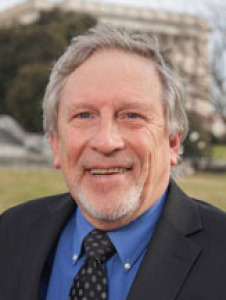Mike Bloomberg, the billionaire former mayor of New York City, is becoming a significant factor in the Democratic presidential campaign. He's self-funding a flood of national advertising and under new rules should qualify for the televised debates soon after next week's New Hampshire primary.
He skipped the campaign for the Iowa caucuses, which traditionally forces candidates to take stands on agriculture and food policy. But there are still some clues to his approach to ag issues. He has a long record of being pro-trade, he's a one-time critic of federal biofuel policy, and as mayor he undertook a war on obesity by trying to discourage the consumption of sugary drinks.
He's rising swiftly in national political polls and running fourth — behind Joe Biden, Bernie Sanders and Elizabeth Warren — among the Democratic candidates nationally, according to the RealClearPolitics average of polls. Some polls also put him ahead of President Donald Trump in a head-to-head matchup.
Bloomberg’s public statements and campaign website are sketchy on agricultural and rural policies. He turns 78 on Feb. 14, was a Democrat most of his life but a Republican and an independent in his 12 years as a mayor between 2002-2013. His campaign policy advisor, who agreed to share information on background, said Tuesday that, though he has "not yet rolled out his ag policy, we expect it in the coming weeks."
Farm groups say they know little about his ag policy views, yet he's “perhaps the strongest supporter of free trade among the various Democratic candidates,” according to a study of the 2020 presidential candidates co-authored by former USDA Chief Economist Joe Glauber and published by the American Enterprise Institute, a conservative think tank. The report says Trump’s trade policy is a personal “confrontational exercise” that causes “collateral damage” to farm markets.
The advisor says Bloomberg insists "it was a mistake to walk away" from the negotiated Trans-Pacific Partnership in 2017, and that action was "a setback for US farmers. The US has lost a great opportunity to shape global trade rules." Bloomberg wants to join in "an improved version of TPP, but by promoting other high-standard trade pacts," the advisor says.
In line with the other leading 2020 Democratic presidential hopefuls, Bloomberg also calls for accelerated investments in transportation infrastructure. He points to Trump’s quickly discarded pledge two years ago to “spur the biggest and boldest infrastructure investment in American history.” He proposes “a national capital budget specifically dedicated to major, long-term infrastructure projects … (to) repair 240,000 miles of roads and 16,000 bridges by 2025, and allocate $850 billion over 10 years” for such work.
For example, he calls for expanding the Surface Transportation Block Grant Program, now $12 billion a year, to $30 billion and requiring “that states devote a quarter of their grants to fixing any local bridges in poor repair.”
Interested in more coverage and insights? Receive a free month of Agri-Pulse or Agri-Pulse West by clicking here.
He calls for expanding broadband service to all households, for example, but hasn’t publicly addressed other rural development or most major farm sector issues such as agribusiness consolidation, crop insurance, gene editing, or farm conservation incentives.
Bloomberg has switched his stance on biofuels. He criticized support for corn-based ethanol over the years while becoming an advocate for reducing global use of fossil fuels. But about a year ago he declared that ethanol should be a long-term transition fuel on the long path toward carbon-free energy sources. He now refers to corn-based ethanol as carbon-neutral, and his adviser said Tuesday "he would reform the Renewable Fuel Standard to make it a national Low Carbon Fuel Standard – to reduce emissions from the production, distribution, and use of transport fuels."
Bloomberg’s focus in reducing greenhouse gas emissions is the electric power sector, where he wants to cut U.S. emissions by 80% by 2028. But along with many of the other Democratic candidates, he also strongly favors converting to electric vehicles, which would reduce demand for liquid fuels, including corn ethanol. He'd also like to "keep nuclear plants running," his campaign office says.
As mayor, Bloomberg also took on the beverage industry in an effort to cut consumption of sugary sodas and drinks. His administration tried to prohibit the sale of sugary drinks larger than 16 ounces in certain city venues, including restaurants, movie theaters and stadiums, but courts overturned the ban.
Bloomberg also proposed to make sugary drinks ineligible for the Supplemental Nutrition Assistance Program, but USDA rejected that idea in 2011 under former President Barack Obama.
Americans will be able to catch more of Bloomberg’s views in the televised Democratic candidate debates Feb. 19 or Feb. 25 or after. He has been absent from those events so far but may soon qualify since the rules were adjusted for getting a podium to better accommodate a self-funded candidate.
For more news, go to www.Agri-Pulse.com.


